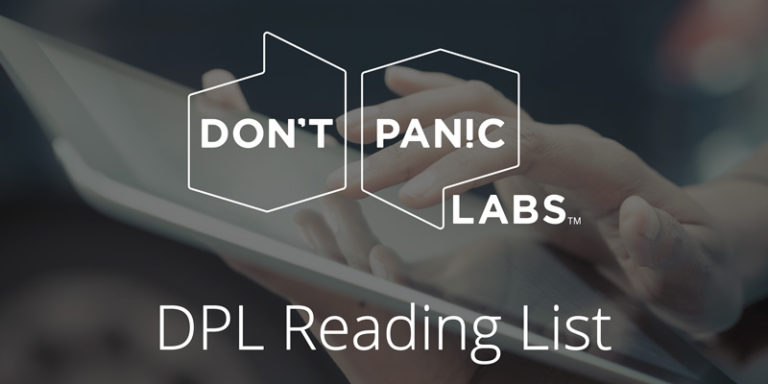DPL Reading List – January 29, 2016
Here are some of the articles we’ve been reading around this office this week.
Microsoft Open Sources Its Artificial Brain to One-Up Google – “The company has open sourced the artificial intelligence framework it uses to power speech recognition in its Cortana digital assistant and Skype Translate applications. This means that anyone in the world is now free to view, modify, and use Microsoft’s code in their own software.”
How I Stumbled Upon The Internet’s Biggest Blind Spot (Thanks to Brian Zimmer for recommending this article) – “Funding opportunities need to look like the shiniest toy in the toy store. Nobody wants to fund things that should exist. They want to fund things that inevitably exist. I went back through my spreadsheet and asked myself a revised question. If this project disappeared tomorrow, would Silicon Valley notice? As I went through my list and crossed off company after company, I felt disheartened. It was difficult to admit to myself that so many of these projects didn’t have the cachet I needed to support my thesis. Upon reviewing my work, I quickly realized that only one category had consistently not been crossed out: open source infrastructure.”
Why I Hate Your Single Page App (Thanks to Jarrod Wubbels for recommending this article) – “Maybe your single page app is different, but the ones that I know break most of my browser’s features, such as the back and forward buttons, page refresh, bookmarking, sending a link, or opening a link in a new window or tab. They offer no way to link to something that I look at.”
The Internet Of Things Presents Challenges That Have Not Been Fully Addressed – “A couple of recent ARC Advisory Group reports focus on some issues with factory automation systems that have not received enough attention. Those issues are the same issues that all IoT applications will face. Thus, examining these factory issues can allow us to peer into the future and predict the kinds of problems that new IoT solutions will bring to enterprises.”
Accessibility Is A Process, Not A Project (Thanks to Jarrod Wubbels for recommending this article) – “If we want to change the behavior of how someone approaches this problem, the approach needs to change. Leaving accessibility problems to surface only after everything has been built is a horrible way to develop a product. By making accessibility an organizational process improvement, the experience of using a product has already become a defined approach.”
The Trickle-Down Effect of Good (and Bad) Leadership – “We already know that good leadership creates engaged employees and that leaders influence a variety of outcomes such as personnel turnover, customer satisfaction, sales, revenue, productivity, and so on. But if you’re a good leader, do you make the people around you more likely to become good leaders as well? And which behaviors are most readily ‘caught’?”
The 3 Most Important Skills For Thriving In The Future — No Matter What The Future Is (Thanks to Brian Zimmer for recommending this article) – “I believe there are 3 skills that can provide this stable base. These skills themselves are not immune to change, but if we learn and master them, they give us the tools to reinvent and remodel ourselves in the face of change — they make us immune to the unnerving aspects of change, and able to find success and happiness within the waves.”



